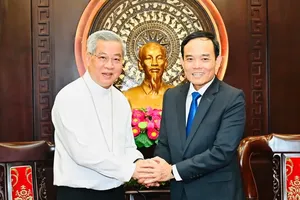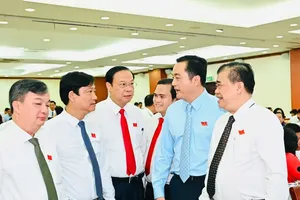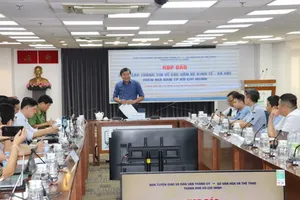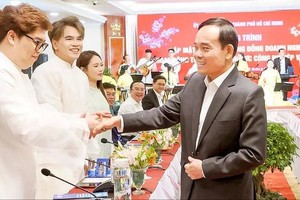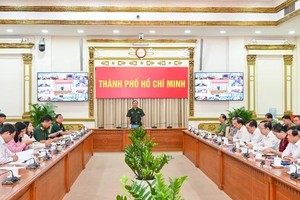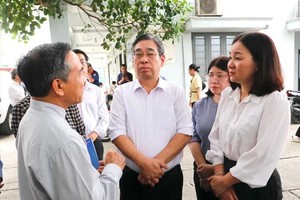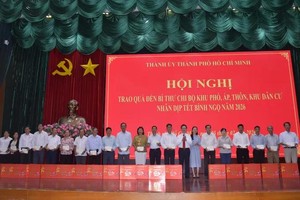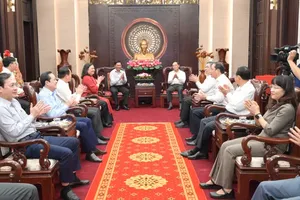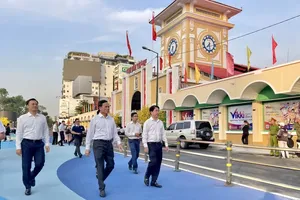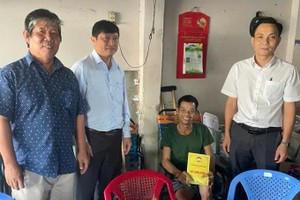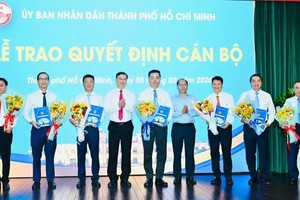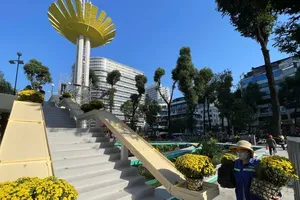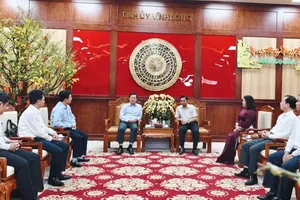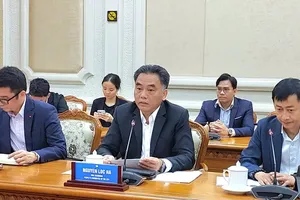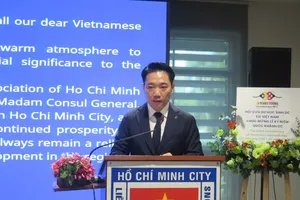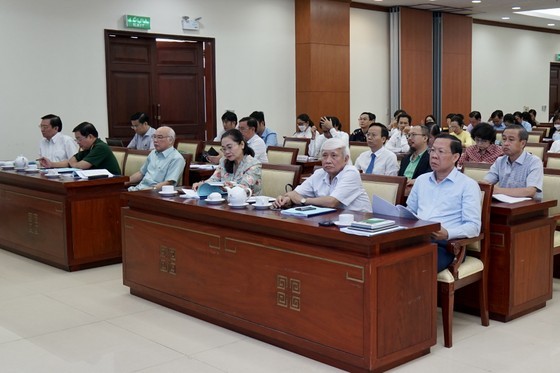 |
At the conference (Photo: SGGP) |
He made the statement at a conference to review 10 years of implementing the 11th-tenure Party Central Committee’s Resolution No.20 on science and technology development to serve industrialization and modernization according to the socialist-oriented market economy and international integration organized by the Ho Chi Minh City Party Committee.
The conference saw the participation of Chairman of the Ho Chi Minh City People's Committee Phan Van Mai, Chairwoman of the municipal People's Council Nguyen Thi Le, Deputy Secretary of the Ho Chi Minh City Party Committee Nguyen Ho Hai and Head of the Propaganda and Education Board of the city Party Committee Phan Nguyen Nhu Khue.
According to the reports at the conference, the development of science and technology in Ho Chi Minh City has made remarkable progress in recent years. Thereby, the southern metropolis is gradually turned into a center of commerce - services, high-tech industry, research, innovation and technology transfer of the southern region in particular and the country in general.
Director of Ho Chi Minh City's Department of Science and Technology Nguyen Viet Dung said that according to a survey by the Asian Development Bank, in 2015, Ho Chi Minh City's innovation start-up ecosystem was still in its infancy. After that, with diverse policies to meet practical requirements, in recent years, the city's innovation start-up activities have been very exciting even during the Covid-19 pandemic, the innovation start-up community created technology application solutions to support epidemic prevention, social security, learning and business activities.
By 2022, Ho Chi Minh City has ranked 111/1,000 cities with the most dynamic innovation start-up ecosystem in the world.
However, Mr. Nguyen Viet Dung said that in reality, several existing limitations such as the legal corridors and the state's policies that have not kept up with reality; plus, innovation culture, especially open innovation has affected the development speed of innovative start-ups.
According to Mr. Nguyen Viet Dung, it is necessary to further promote the tectonic role of the state in the development of the innovative start-up ecosystem, which requires outstanding models, mechanisms and policies.
With the same opinion, Assoc. Prof. Mai Thanh Phong, Principal of the University of Technology under the National University of Ho Chi Minh City, said that the legal documents on science and technology have not been developed and promulgated at the same pace as the development of new products and new technology. Moreover, corporate cooperation has not gone into depth, there is still a gap between scientists and businesses.
According to Principal Mai Thanh Phong, although research groups have grasped key technologies and their mastery was highly appreciated by enterprises, the resulting products have not met the expectations of enterprises. Most technology transfer contracts signed with enterprises only focus on technical services.
Similarly, the Ho Chi Minh City Biotechnology Center also reported that many potential products have been successfully researched but have not been applied to large-scale production to create products for the local market. The center pointed out the culprit is that regulations and cooperation, linkage and technology transfer between research institutions and enterprises are not clear.
Last but not least, most businesses are not ready to invest in scientific research and technology development.
Speaking at the conference, Deputy Secretary of Ho Chi Minh City Party Committee Nguyen Ho Hai noted that in the period 2012-2021, the city's science and technology activities had achieved important and comprehensive achievements, contributing to positive changes for the city's economy.
However, he also noticed that the development of science and technology has not kept pace with the requirements of socio-economic development and urban management of the city. He added that the development of science and technology has not really become an impetus for the city’s development.
Mr. Nguyen Ho Hai suggested continued implementation of the Resolution of the 13-tenure National Congress of the Party on orientations for the development of the country in the 2021-2030 period on promoting national digital transformation and developing the digital economy on the basis of science and technology. He supposed continued appeal of social resources for infrastructure investment, strengthening trade promotion activities, development of the customer-service market and good policies to encourage and support the development of intermediary service organizations for technology assessment, testing, transfer and application.
Simultaneously, the city should strengthen international cooperation in research and development, application and transfer of science and technology products for the development of a number of fundamental industries and expand international cooperation towards supporting a number of science and technology fields.
